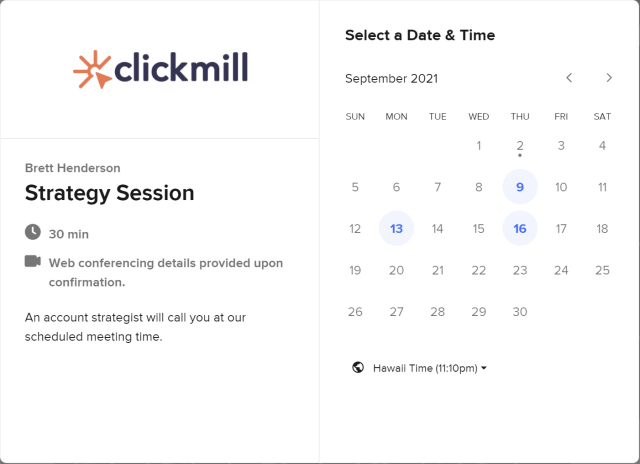Bad habits that hurt church growth include having a vague church identity and not tracking key metrics. Failing to use your data, not calling your audience to action, and depending too much on “super pastors” also slow growth. Doubt, siloed ministries, and not addressing community needs further hold things back. Breaking these habits can lead to lasting church growth.
Many pastors want to know how to increase church growth. What they don’t know is that it’s usually easier to stimulate church growth by just getting rid of bad habits that kill church growth.
If you just eliminate these hindrances to church growth, you will be primed to see some healthy growth in your church.
In this article we will discuss the 8 biggest church growth killers:
Bad Habit 1: Maintaining A Hazy Church Identity
Let’s get right into some bad habits that kill church growth.
Most churches have a hazy understanding of their identity at best. Your church’s identity comprises your visions, mission, and goals.
Can you drive your car to dinner if you don’t know where the restaurant is? Of course not.
The same is true with your church. If you aren’t clear on the vision of the church and the mission God’s call you to, how can you ever make forward progress?
You can’t. If you want to grow your church, you have to get crystal clear on where God has got your ministry headed.
Many church leaders are genuinely afraid to get crystal clear on the vision, mission, and goals because it would mean they can’t reach EVERYONE.
It’s true, to get specific, you have to leave someone out of your ministry plan.
Truthfully, whether or not you get clear on the identity of your church, you’re not going to reach everyone. Many ministry teams we work with have a hard time accepting this.
If this is you, then I would ask how your ministry to Zambian widows is going? Oh, you don’t have one? What about your mission trips to Siberia, how are they progressing? You don’t have one of those either?
See, you aren’t reaching EVERYONE, and it’s unrealistic to think you will. Peter was called to the Jews. Paul went to reach the Gentiles (Galatians 2:8).
None of them reached EVERYONE. (Even the books of the New Testament had narrowly defined audiences to whom they were written).
Reaching EVERYONE is the job for the capital C Church, not your church.
Once you understand what’s possible and what’s not, you can get crystal clear on your church identity.
Only then can you begin to make momentous progress toward the mission, vision, and goals God has set for your ministry.
Take some time with your team and clarify your church identity.
If you would like a more in-depth guide on doing this, check out our article How To Grow A Church: 10 Best Biblical Church Growth Strategies [2021].

Get A Proven Marketing Plan That Increases Enrollments When You Book A Call Today!
Receive customized advice to help your school attract more families!
Bad Habit 2: Failure To Measure
The next habit on our list of bad habits that kill church growth is one that is 100% necessary, but nobody is excited to do. Once you have identified your church’s identity, it’s time to start measuring your progress toward the vision, mission, and goals God has given you.
If you don’t measure your progress you will never know whether or not your efforts are working.

Once you decide on a restaurant for dinner, you probably use a GPS to get there. The GPS feeds you data about your current position and what you should do to arrive on time.
If you’re like me and you think you know better than your GPS, you’ve probably shown up late a few times.
Tracking Sunday service numbers and using data tracking tools (like google analytics) that are freely available online is just like using your GPS.
Compiling data helps you line up where you currently are and where you are going. Then the decisions that will get your church to its destination become more apparent.
There are several reasons why many church leaders don’t see growth. Here are a few bad habits that kill church growth; all have to do with avoiding the tracking process altogether.
1) Pastors don’t fully understand analytic data and how it can help them speed up growth.
2) Pastors find it boring or confusing to measure progress toward goals and vision.
3) Pastors think they don’t have time.
4) Pastors don’t have good systems in place to track data for each week/month/quarter/year.
5) Pastors and church leaders feel they are in ministry to help people, not to track numbers. They aren’t passionate about it and have little motivation to take this on.

Take some time to get with your ministry team, identify the numbers you need to track. Then create and implement systems that will enable your team to consistently track your numbers.
You will then have a functioning GPS system taking your ministry to the destination God intends you to reach.

Get A Proven Marketing Plan That Increases Enrollments When You Book A Call Today!
Receive customized advice to help your school attract more families!
Bad Habit 3: Not Using Your Numbers
The number 3 bad habits that kill church growth is not using your analytic data to your advantage.
Many church leaders have staff in their media department yammering on day and night about data. These ministry team members are reading data and tracking information and trying to feed you vital information but they often go unheard which are common bad habits that kill church growth.
Ministry teams often don’t consume this data or use it for strategic planning.
We have found that ministry teams don’t use the numbers they track for two primary reasons:
1) They don’t understand the data, find it boring, and don’t feel it’s important to learn.
2) The tech staff doesn’t understand how to communicate the data in an easy-to-understand format.

Adding a 15-minute data check-in once or twice a week should suffice if it’s done correctly. The right person will know how to use the appropriate data tools (like google analytics, google search console, or any other tools your church may employ).
Have them give you a breakdown of how much progress you are making toward your church’s goals.
If this is already happening for you, great! If not, take some time with our church strategy team here at ClickMILL to help streamline this process in your ministry.
Our team of church marketing specialists will help your team identify what data points matter most to you and can provide training on how to use this data to grow your church.
Bad Habit 4: Not Calling Your Audience To Action
I see this all the time in high school students. Youth pastors throw fun, parties, and games at them like there’s no tomorrow and they still don’t see growth.
They try to convince teens to show up with sugar and games, but it turns out the kids want vision and purpose in their lives.
When youth pastors tell their teenagers that it’s time to take some ownership and get down to business, their teens begin to flourish under the weight of their newfound responsibility.
Pastors then begin to notice that their group is growing and their teens are growing in faith and character as well.

Get A Proven Marketing Plan That Increases Enrollments When You Book A Call Today!
Receive customized advice to help your school attract more families!
The teens didn’t want another party, they wanted someone to trust them. They wanted you to believe in them and give them ownership over work that brings purpose into their life.
Once they are entrusted with the responsibility, they become passionate about their commitment to the group because they have found a purpose.
This is true for adults too.
Find out what your audience is passionate about and call them to action. Let them know you CAN’T do it without them. You don’t speak the languages they do. You can’t play basketball with the kids like they can. Their skills are 100% INDISPENSABLE.
When you communicate this correctly, your church members will begin growing your church for you.
Bad Habit 5: Super Pastors
Many churches are limited in growth because one or multiple pastors are trying to do TOO MUCH!
During the early stages of a church’s life cycle, pastors often have no choice but to take on all the roles in the church.
However, as your church grows you must be willing to move out of the day-to-day operations and into a managerial role.
The truth is, you can only do what you can do. Once you hit that threshold your church growth is limited to your personal ability.
(Note: Not only this but super pastors are at a much higher likelihood of burnout. One super-pastor I know was just in the hospital with many symptoms including fainting and high blood pressure. The doctor said he was in good health and didn’t see any medical reason for this and ask if he was experiencing high amounts of stress from work.)
When you reach your personal capacity, it’s time to begin to empower other staff or volunteers to take over the system you formerly put in place.
This means you need to clearly identify and teach the step-by-step process to the new overseer of the task. Then step away and focus on larger issues – but don’t forget to check in with your team as needed.

How do you let go of all the work?
- Identify the top 5 responsibilities that take up the majority of your time.
- Identify which responsibilities can be most easily broken down into teachable steps.
- Break them down into teachable steps.
- Begin training other staff members or volunteers on how to execute the task(s). (Hold their hand every step of the way at the beginning and slowly take a step back as they get the hang of the system.)
- Set clearly defined goals, objectives, & timeframes for this person then make it a habit to check in on them. Your job is now one of managing, incentivizing, and motivating others.
- Repeat.
Only when you choose to remove yourself as the bottleneck in your church will you open up the floodgates to church growth.
*If you like this article and want to know more about church growth, check out our post, 10 Most Powerful Church Growth Strategies.

Get A Proven Marketing Plan That Increases Enrollments When You Book A Call Today!
Receive customized advice to help your school attract more families!
Bad Habit 6: Doubt and Being Double Minded
Doubt and double-mindedness lead to bad decisions. Bad decisions lead to bad results. If bad decisions occur over time, bad results begin to accumulate and threaten the health of your church.
We see exactly this as Peter gets out of the boat and begins to walk on the water toward Jesus. Peter began in faith. However, as he allowed fear and doubt to creep into his thoughts and emotions, he began to sink.
Many times sinking churches are the result of indecision or decisions that come from a conflict between two competing beliefs.

“But when he saw the strength of the wind, he was afraid, and beginning to sink, cried out, “Lord, save me!” Immediately Jesus reached out His hand and took hold of Peter. “You of little faith,” He said, “why did you doubt?” – Matthew 14:30-31
Example: Many churches have a stated vision to do XYZ but they also have 10 church programs that are unrelated to their vision.
The heart behind these 10 programs is good, it’s to reach people who may not align perfectly with the vision of the church. Unfortunately, the results of this type of decision-making are typically not the best.
Double-minded decision-making leads to overworked church leaders who are unclear on what they are trying to accomplish and what they should prioritize. If everyone is who you’re trying to reach, everything is a priority.
Failing to address doubt and double-mindedness results in bad decisions. This doesn’t just keep you from growing, it can stop growth dead in its tracks if left unchecked.
In many cases, the best way to address doubt in church leaders is to get back to the basics. What is the vision God has given for your church? What is your specific ministry called to do?
Only when you are clear about your vision and 100% committed to it will you be able to push through doubt and double-mindedness.

“If any of you lacks wisdom, you should ask God, who gives generously to all without finding fault, and it will be given to you. But when you ask, you must believe and not doubt, because the one who doubts is like a wave of the sea, blown and tossed by the wind.
That person should not expect to receive anything from the Lord. Such a person is double-minded and unstable in all they do.”
Bad Habit 7: Permitting Silo Ministries
I have seen many churches that have silos within their walls. The people in one silo ministry don’t talk with the people in the other silo ministry.
For starters, this type of ministry breeds poor relationships and fosters grudges, and generally leads to a toxic environment.
Even more detrimental is the impact silos have on growth.

Get A Proven Marketing Plan That Increases Enrollments When You Book A Call Today!
Receive customized advice to help your school attract more families!
The most effective ministries have highly trained teams who each specialize in a specific area of ministry but are simultaneously aware of how their actions affect the other ministries in the church.
This is what I refer to as “whole thinking”.
Each part of your ministry is like a piece of a puzzle. To assemble the puzzle, you must have someone who is purposely trying to understand the whole puzzle.
Focusing on just one piece of the piece never enables you to complete a puzzle.
The same is true in ministry. To fulfill the calling on your ministry, those on your ministry team must not only look to their specific role but must also seek to understand the roles of their colleagues.

Each piece of your ministry is interdependent on every other part.
When staff members are trained to understand how each piece of the ministry works, they begin to make decisions in a way that not only benefits their specific area but they also begin to make choices that will benefit all the interconnected ministries as well.
When staff members are allowed to operate within their “silo”, they slowly become blind to how the rest of the church functions.
This leads to infighting, battles for resources, bitterness, and a general lack of efficiency all around. (You may think this is overstated but I have seen it first hand.)
What’s the solution? It may be as simple as holding a church-wide staff meeting once a month where each leader reports his or her progress against goals and then learns from others who are doing something similar but getting better results.
It may also mean cross-training ministry leaders one day a month.
It’s easy for Janice to get upset with the youth pastor about the disheveled chairs in the auditorium when she has been locked in her silo for the past six months.
But as soon as she joins him for an afternoon, she discovers that he lives in a perpetual state of semi-controlled chaos, and the fact that there is an auditorium left at all is probably a miracle.
When you see life from the perspective of others, you begin to empathize with them simply because you understand them.
Not only can cross-training bring down the walls that exist between staff members, but it can also lead to higher levels of performance on all sides.

Get A Proven Marketing Plan That Increases Enrollments When You Book A Call Today!
Receive customized advice to help your school attract more families!
Now that Janice understands how the youth ministry operates, she also understands the most effective way to plug other parents and students in.
When Janice experiences the passion the youth pastor has to bring young people into a relationship with Jesus, she is much more likely to work alongside him than to operate in some form of opposition.
To grow your church, you need to operate as one unit. That requires everyone to understand how the whole church operates.
A great way to measure the capability of your team to use ‘whole thinking’ is to see if they are able to perform the responsibilities of another random person on the team.
The less they are capable of performing someone else’s role, the less they understand how the ministry functions as a whole.
Bad Habit 8: Failing To Meet Needs
Of all the bad habits that kill church growth, I saved the most grievous till the end. Ministries that are on the decline have almost always stopped meeting the needs of their congregation, people outside the church, or both.
A Deeply Felt Need is the most powerful desire a person has at any given time.
In the New Testament, we find Jesus going all over Israel meeting the deeply felt needs of the children of Israel.
He fed the hungry, healed the sick, gave sight to the blind, gave fish to fishermen. As a result, people constantly followed him.
People will constantly follow you too if you make it a point to listen to the people associated with your ministry and begin asking what their most deeply felt needs are.
Give a short 3 question poll or survey to every person if you have to.
- What’s the biggest problem you’re facing in life right now?
- What’s the most meaningful experience you have had at our church?
- What one thing would you change about our ministry?
As you ask these three questions, you will begin to discover the needs of the people in and around your ministry. Even more, after you have asked enough people these questions you will begin to see patterns in the data.
A common set of answers will begin to emerge, and when it does, begin solving the problems of your audience, give them more meaningful experiences, and consider making the changes they suggest.
When you begin meeting the deeply felt needs of your audience, something is triggered in the hearts and minds of your recipients.
In the field of psychology, they call it the rule of reciprocity. There is an unconscious and uncontrollable desire to help those who help us.
As studies have been done on this impulse, researchers have found that people frequently give more back than they were given, be it in different forms.

Of course, this is not to say that you should meet needs just because you want to receive in return, this motivation wouldn’t be Biblical.
You should give generously, cheerfully, and with the desire to show the love of Christ to those around you, and in doing so people will be shockingly receptive to the gospel, and your ministry.

Get A Proven Marketing Plan That Increases Enrollments When You Book A Call Today!
Receive customized advice to help your school attract more families!
“Remember this: Whoever sows sparingly will also reap sparingly, and whoever sows generously will also reap generously. Each of you should give what you have decided in your heart to give, not reluctantly or under compulsion, for God loves a cheerful giver.
And God is able to bless you abundantly, so that in all things at all times, having all that you need, you will abound in every good work.”
Many church leaders have the heart to meet the needs of those in and near their ministry but they end up meeting the needs THEY THINK those people have.
There is a very large difference between the needs YOU THINK your audience has and the needs they actually have.
When you unintentionally meet needs that nobody has, you’re not meeting any needs at all – and everyone goes somewhere else in search of getting their needs met.
Implement the survey above and see what needs your audience is yearning to have met, meet them and watch your ministry flourish.
FAQS
A hazy church identity, comprising unclear visions, missions, and goals, can hinder a church’s progress. Without a clear direction, it’s challenging to make forward progress or effectively reach out to the community.
Measuring progress is essential to understand whether the church’s efforts are working. It’s like using a GPS to navigate; without tracking, it’s difficult to know if the church is moving towards its goals.
Failing to use analytic data can lead to missed opportunities for strategic planning and growth. It’s important for church leaders to understand and utilize data for informed decision-making.
When pastors try to do too much, it can limit the church’s growth to their personal capacity. Delegating responsibilities and empowering others is crucial for sustainable growth and avoiding burnout.
Meeting the deeply felt needs of the congregation and community is crucial. It triggers a sense of reciprocity and makes people more receptive to the church’s message, fostering growth and engagement.
Which bad habits that kill church growth do you intend to break first?
Let us know in the comments!

Responses
Greetings in the name of Jesus Christ. I really want to break this attitude, I can’t study long. Please, how can i break this attitude in me. Clarify me. Thanks.
I am guilty of all these bad habits. Therefore, I am trusting God to break the seventh bad habit first.
Pastor Fredrick, thanks for your comment. Let us know what other types of content you would find most helpful in the future!
i need good books make church grow
A very easy book to read and one that correlates closely with growth is called Essentialism by Greg Mckeown. It is not a Christian book, but the principles in it can apply to any church’s strategy to create growth. In the future, we may create a large article and share our library on books that teach growth. Would anyone else like a larger post on this too?
Yes , please. It’ll really be helpful.
Thanks so much for your comment.